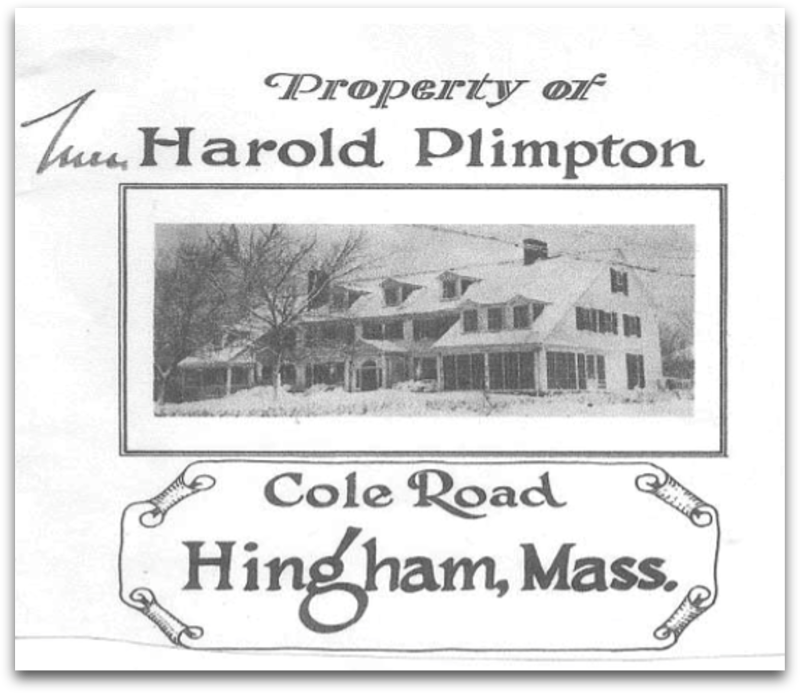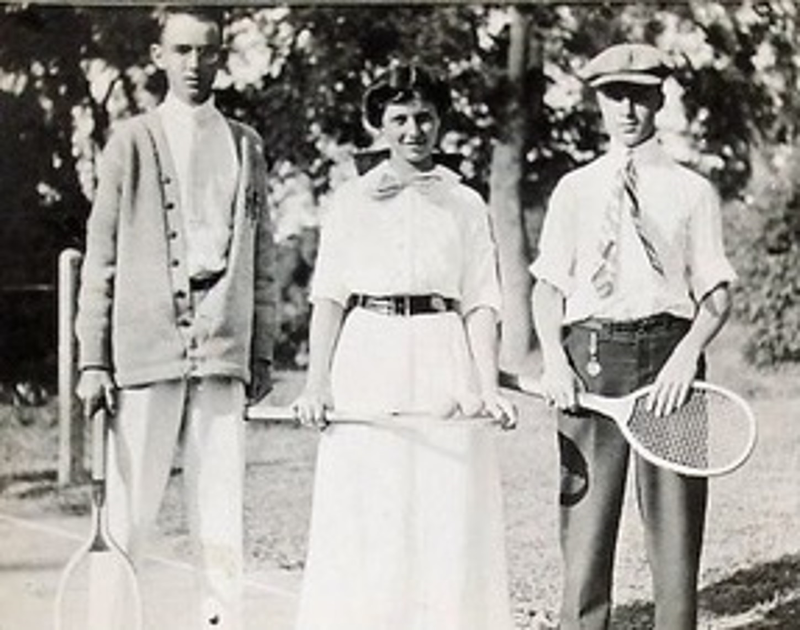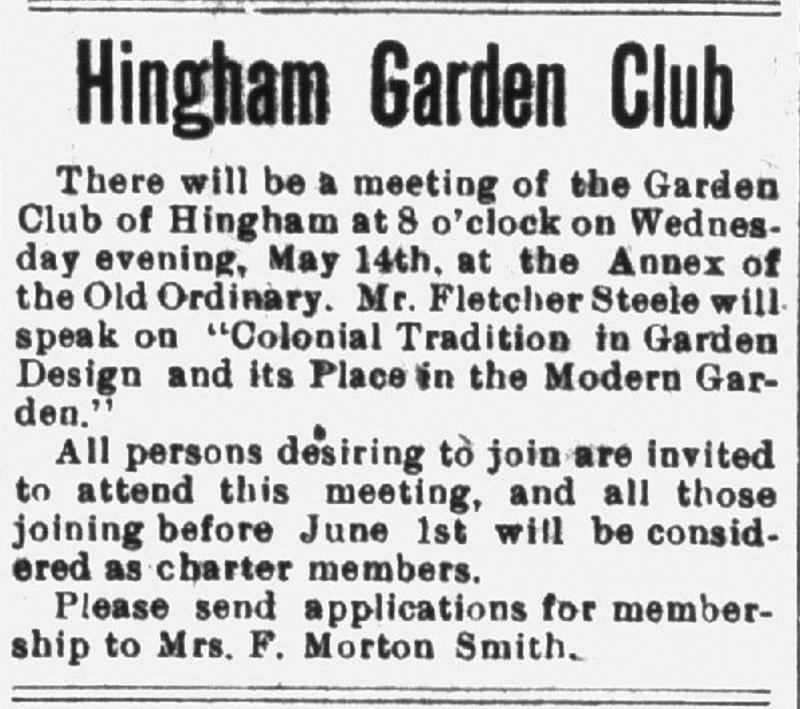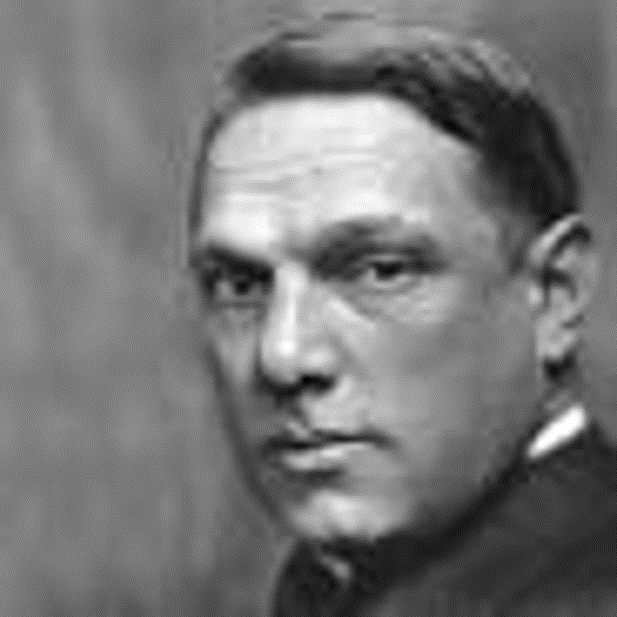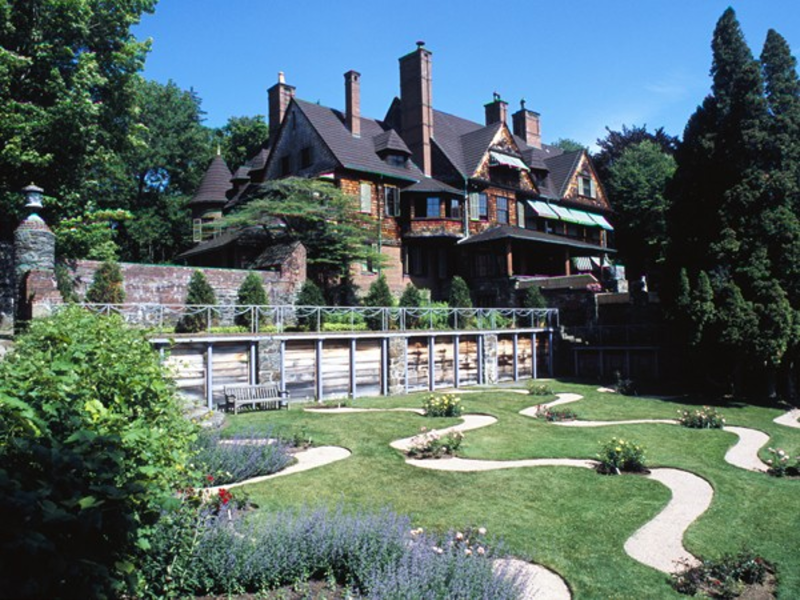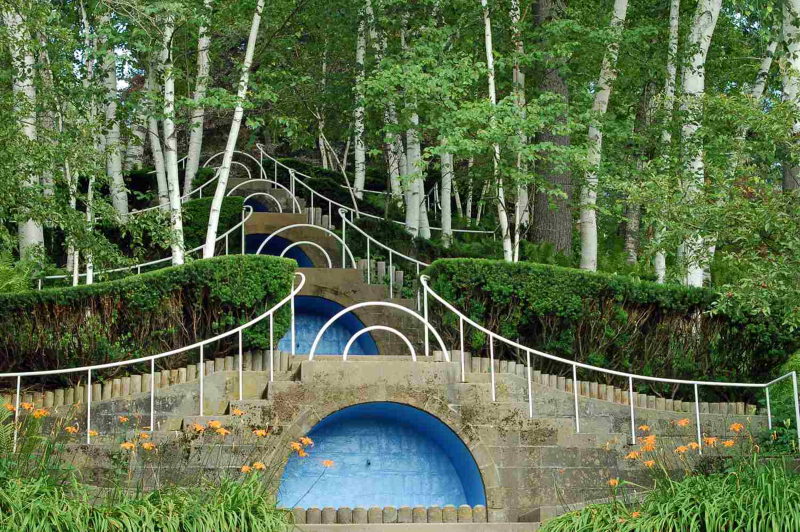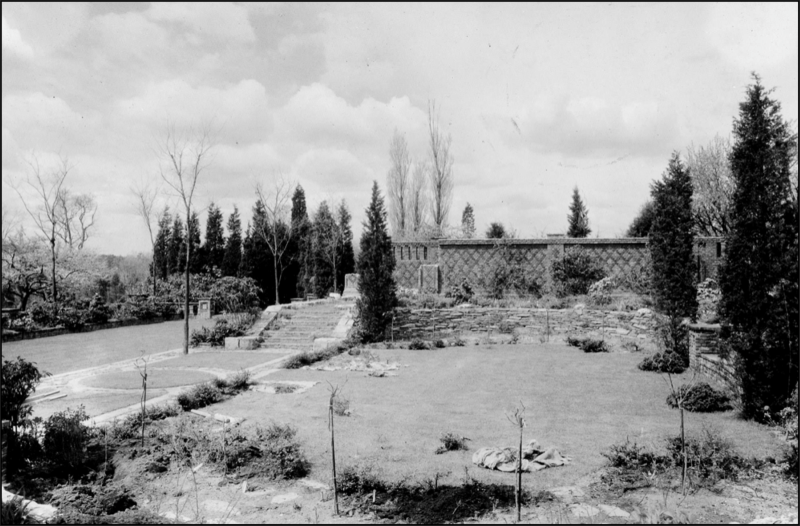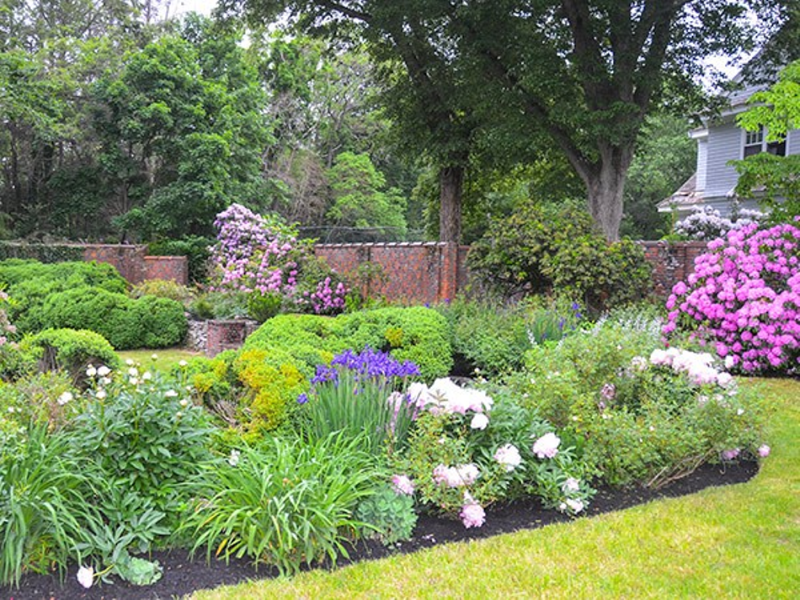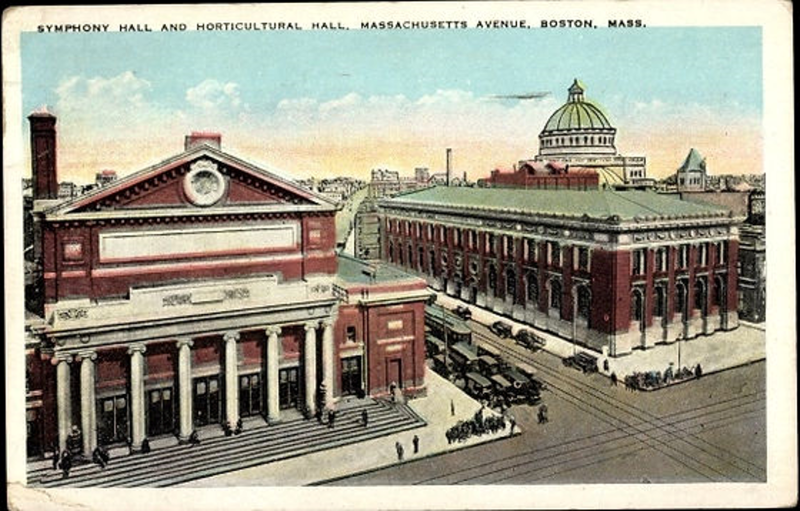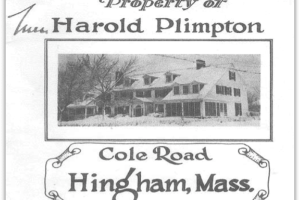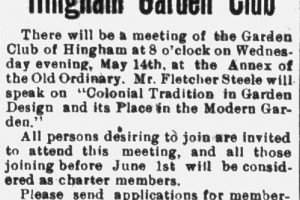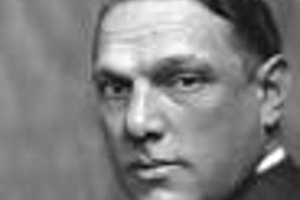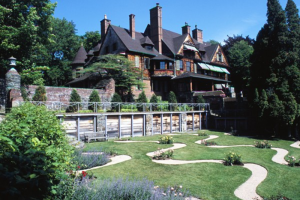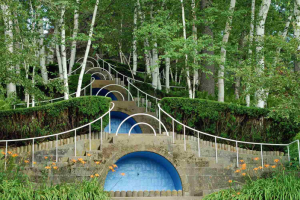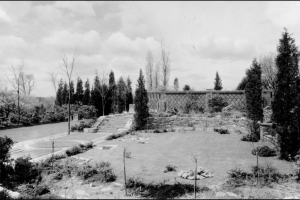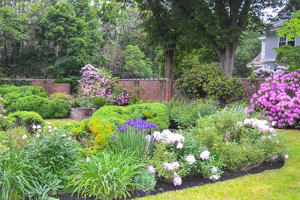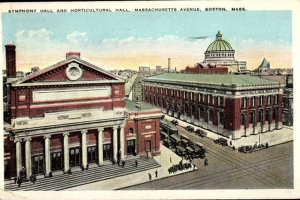Through the decades
We owe our club to Mrs. Harold Plimpton, Sophia. She lived at a fashionable Cole Street home with land that included an orchard, grapevines, extensive gardens, and a tennis court. The Plimptons ushered in the roaring 20s in a home with no thresholds so their guests could dance the night away without tripping. A telephone system from the tennis court to the servant quarters allowed Harold Plimpton to call for martinis after he and his guests finished their tennis matches.
In the early 1920s Sophia led eight friends informally to share gardening interests and ideas. In April 1924, she placed an advertisement in the Hingham Journal asking for people who might want to form a garden club to meet at Town Offices on April 22 at 8:00pm. Success! Fifty people showed up. They elected two male officers (president and treasurer)and two female officers (recording secretary and corresponding secretary).
On May 14th, the first formal meeting of the club was held at the Annex at the Old Ordinary. A Hingham Journal article encouraged people to join and invited them to The Garden Club of Hingham’s first program, a lantern-slide lecture by Fletcher Steele on “Colonial Tradition in Garden Design and Its Place In The Modern Garden.”
Who was our first speaker? Fletcher Steele. He was a landscape architect who designed over 700 gardens. His most famous is Naumkeag in Stockbridge, MA, which was the result of a thirty-year collaboration with client, Mabel Choate. The blue steps at Naumkeag are quite famous. Closer to home, you can visit the Fletcher Steele Garden (formerly the Spalding Estate) in Milton. The Milton Garden Club currently maintains this landmark garden.
In 1927, The Garden Club of Hingham became one of the fourteen charter members of the newly formed Garden Club Federation of Massachusetts. By 1929, The Garden Club of Hingham had 200 members, mostly wealthy couples. Many summered in Hingham, but had winter homes in Boston, Brookline, or Milton. Many of the men took the summer off from work to enjoy their Hingham homes and most employed gardeners to plant and maintain their properties. Popular club activities were garden visits and bird walks.
